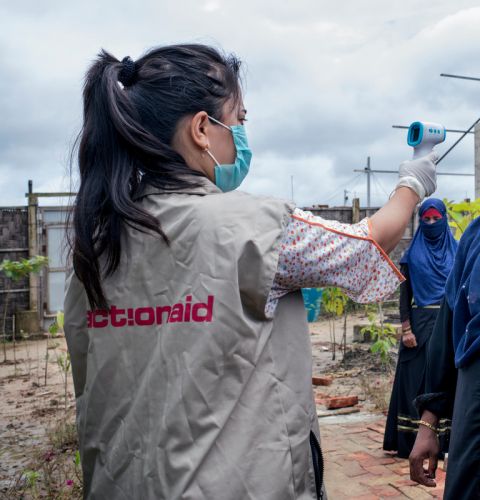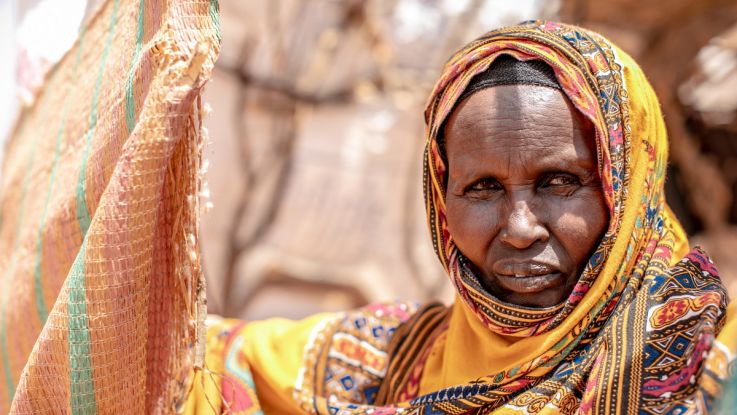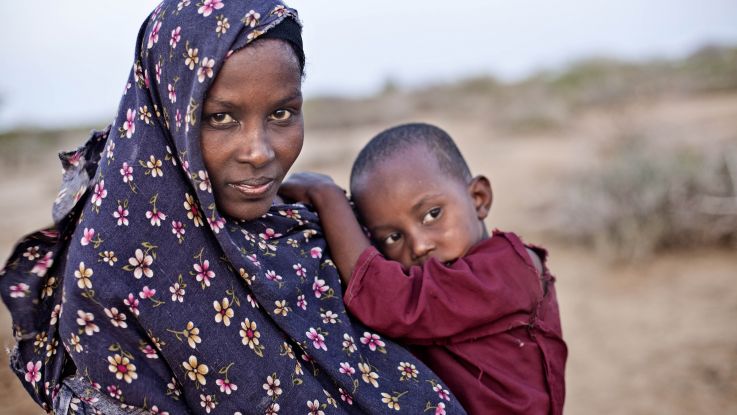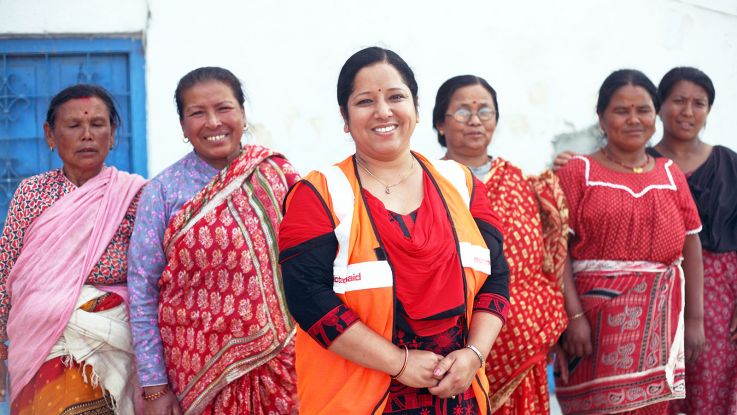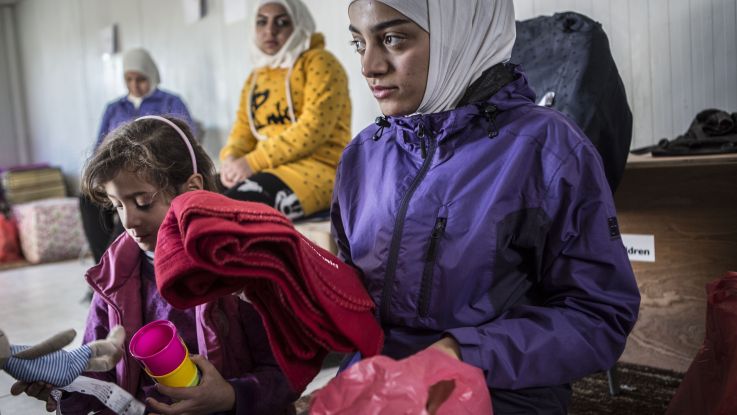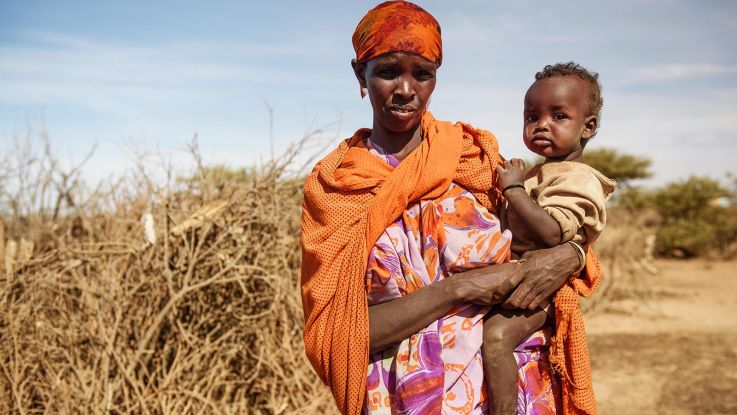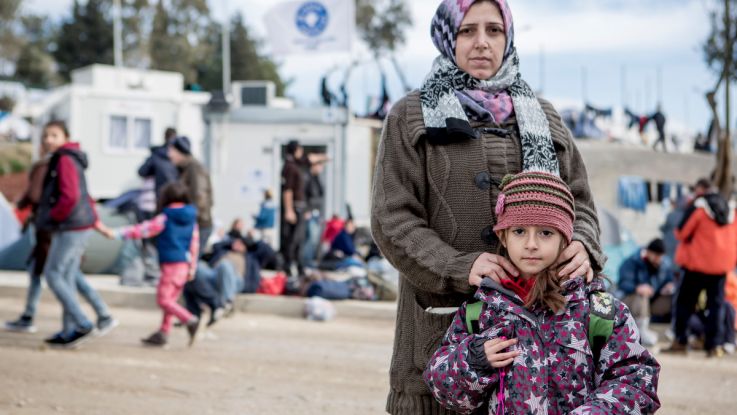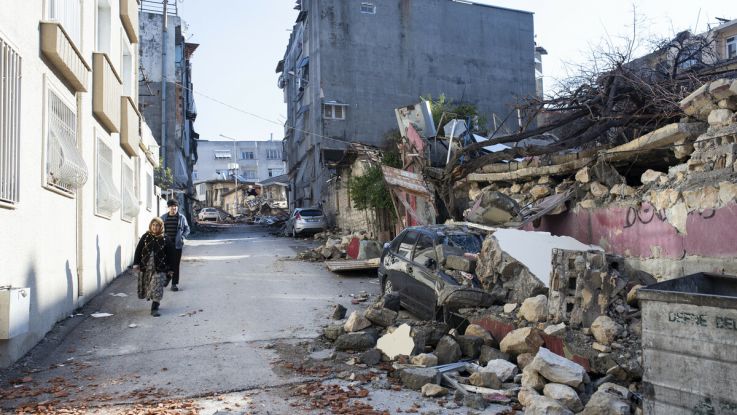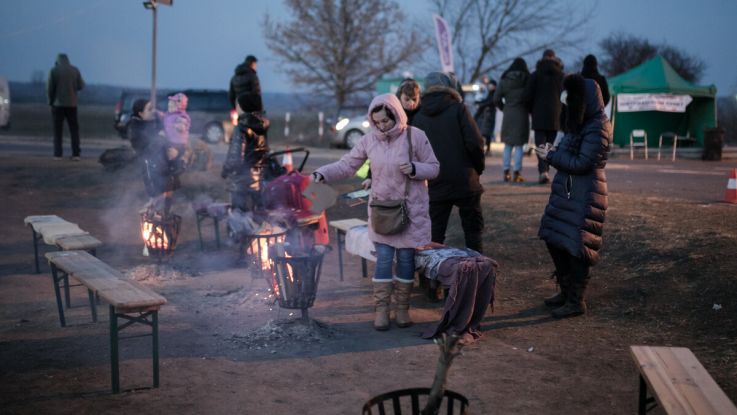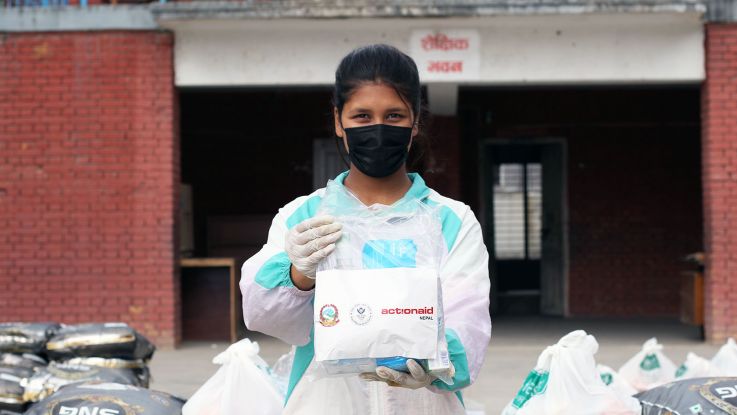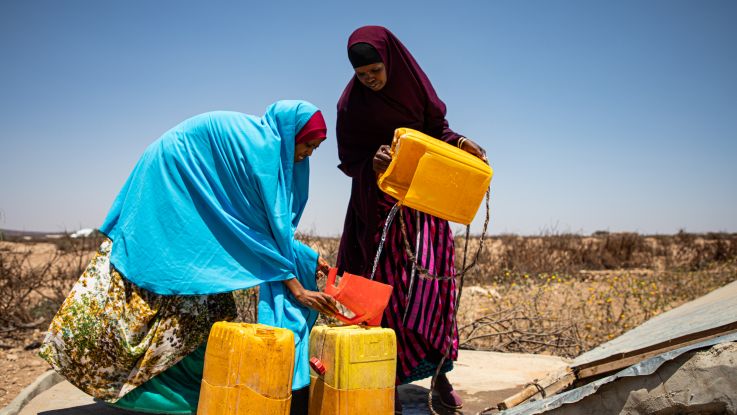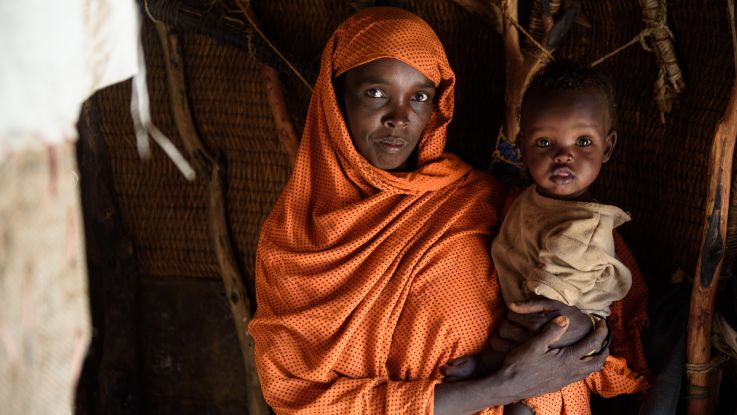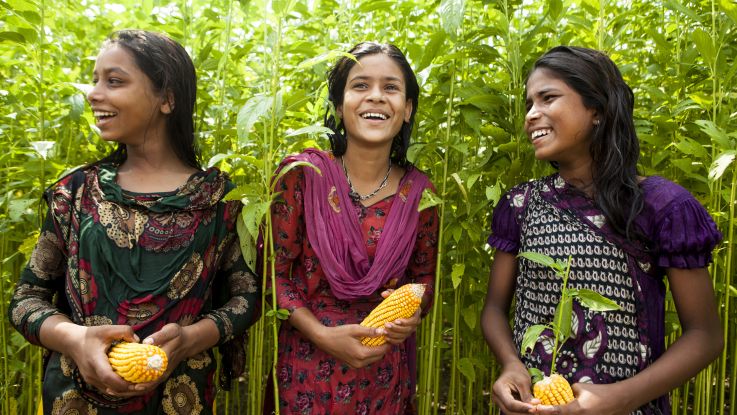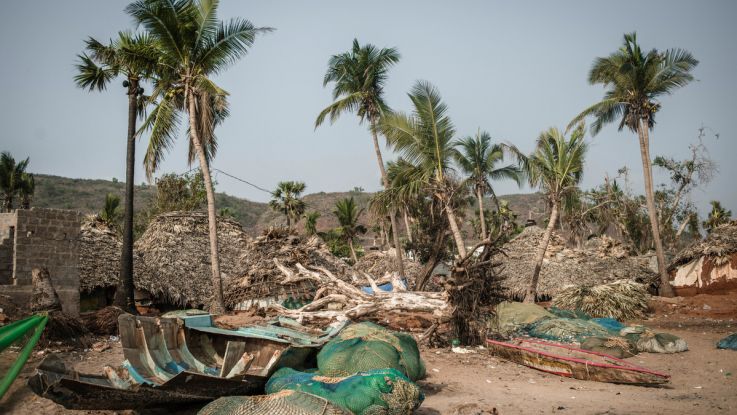Emergencies, disasters and our humanitarian response
ActionAid’s work in emergencies in 2023
We responded to
21
separate countries or territories facing conflicts or disasters
More than
4.5 million
people were supported with humanitarian relief efforts
We responded to
19
separate disaster events ranging from floods, cyclones, conflicts to refugee crises
What are humanitarian crises or humanitarian emergencies?
Humanitarian crises refers to an event or set of events that threaten the health, safety and livelihoods of a large number of people.1
What are the different types of humanitarian crises?
Humanitarian crises can be divided into the following:
-
Man-made emergencies such as conflict and industrial accidents.
-
Disasters such as tsunamis, earthquakes, floods, droughts, cyclones, hurricanes and even health-related epidemics.
-
Complex emergencies which are a combination of both natural hazards and man-made emergencies such as food insecurity and displacement of people.
Women and girls’ rights in emergencies
Ensuring that we work with women means that we do not overlook needs or vulnerabilities that are specific to women and girls in emergencies. We provide women-only safe spaces, where women and girls can access education and training, often for the first time in their lives. They learn to read, gain new skills and start to recognise their own potential.
In these safe spaces, women and girls receive emotional support for any trauma they have experienced. They can also access medical referrals for cases of rape and other forms of violence.
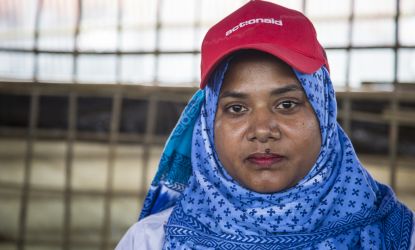
Supporting Rohingya women and girls who have survived violence
Fatema, 35, is an ActionAid counsellor and trained paramedic working in a refugee camp for Rohingya Muslims in Cox’s Bazar, Bangladesh.
Fatema provides emotional support to traumatised women and girls fleeing violence in Rakhine state, Myanmar. "One woman was pregnant and fleeing with her husband,” she says. “Her baby and husband were killed and she had to witness this."
Fatema supports survivors with counselling and guidance.
We tell them that what happened is not your fault. You have to survive, you have to live. And when you live, you have to live with dignity."
Despite the challenges of her work, Fatema is glad to be helping survivors rebuild their lives. "I feel really great doing this job," she says. "It makes me feel really happy if I can lessen a woman's suffering even by a small amount."
Fatema, 35, an ActionAid counsellor in Cox's Bazar, Bangladesh.
Noor Alam/ActionAid
Rapid response and recovery led by women
We know from our emergency response work, for example in Bangladesh, the Democratic Republic of Congo, Haiti, Indonesia, Kenya, Malawi, Nepal and Somaliland, that women bring vital skills, resources and experience to humanitarian response.
Women’s participation in decision-making is not only a fundamental human right. It has been proven to contribute to better disaster preparedness and risk reduction, as well as peace building and conflict resolution in communities.2
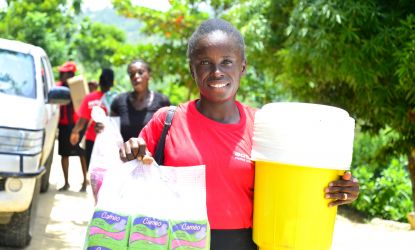
Women-led response during the Haiti earthquake
When a 7.2 magnitude earthquake struck south-western Haiti in 2021, over 2,000 people died and 12,000 people were injured.
ActionAid’s emergency teams led by women were on the ground immediately in the worst affected areas of Jérémie and Les Cayes, responding to people's most urgent needs.
ActionAid's first-responder Ysnelle guided the rescue efforts to save survivors trapped under the rubble. Along with other women first-responders, Ysnelle distributed food and other supplies to those rescued and organised safe shelters for women and girls who were now vulnerable to violence without their homes.
With ActionAid building a network of women leaders and providing training to us on several levels of interventions during emergencies, we have gained skills and we are now known within the communities and help anyone in need."
“For me, the most important thing was to support women, little children, pregnant women, people living with disabilities."
Ysnelle Jean, 36, is a seamstress and mother of four children in Haiti. She’s also a woman first responder, trained by ActionAid to take vital steps to help her community if disaster strikes.
Fabienne Douce/ActionAid
Our long-term support in the wake of a disaster
In the months and years following an emergency, we work with local women to give them the support they need to face the future with renewed hope. This could be helping raise houses above floods levels, assisting them to get back to work with loans, or providing them with farmyard animals or means of transportation.
We endeavour to listen to what women and girls really need to rebuild their lives after an emergency. In Sierra Leone, our commitment to long-term support means we continue to work with grieving communities who were affected by the Ebola crisis, to help them recover from the physical, psychological and financial losses caused by the outbreak.
In areas that face high numbers of natural hazards, we train women to respond to the next disaster when it hits.
For example, in Nepal, ActionAid teaches schoolchildren skills to protect themselves when earthquakes strike.
In Bangladesh, we train women to lead people to shelters during cyclones. The results are astonishing: Cyclone Mahasen killed 17 people in Bangladesh in 2013, compared to 3,500 deaths as a result of Cyclone Sidr in 2007.
Page updated 6 February 2025
